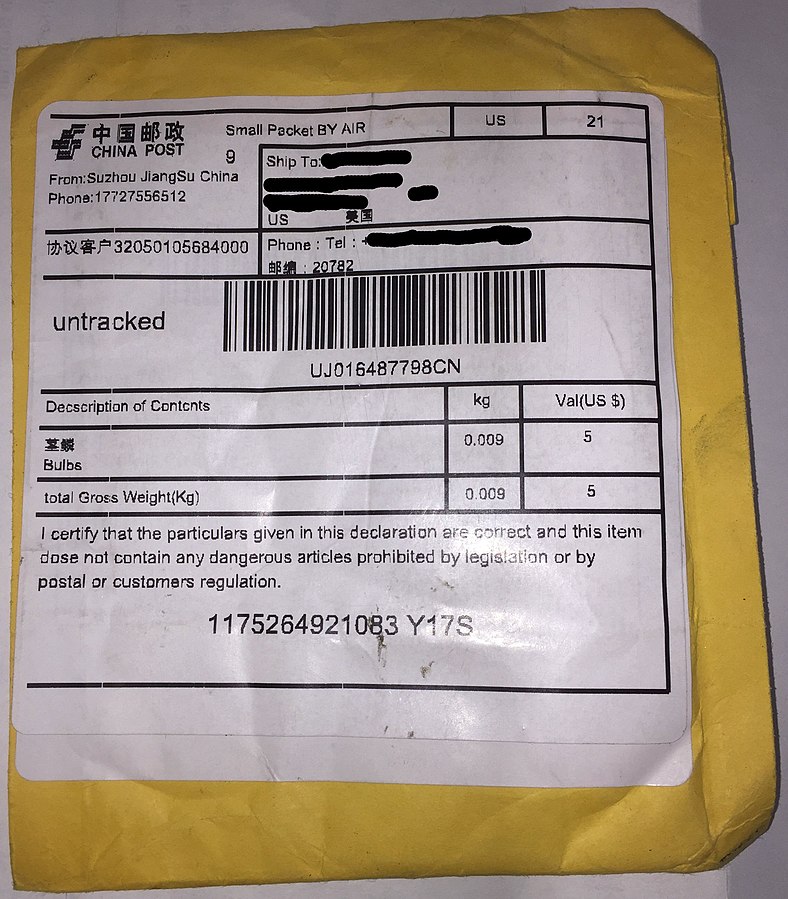
A total of 20,957 small unsolicited packets containing seeds have throughout 2020 been intercepted at the international post office in Kastrup, Denmark. According to the Danish Agency for Agriculture the packages are typically sent from China without clear information about the sender and most likely a so-called “Brushing scheme”.
Brushing scheme or brushing scam is a deceitful technique sometimes used in e-commerce to boost a seller’s ratings by creating fake orders. As most e-commerce sites rate sellers by multiple criteria that are displayed to customers, good ratings can boost sales. Because a shipment usually has to take place for the order to be valid, brushing means generating fake orders by using another person’s information to place the order. When the order is delivered the seller rates himself and boosts his appearance on the e-commerce platform.
At first glance the small packages seem to contain an innocent content of seeds but Kristine Riskær, unit manager at the Danish Agency for Agriculture says, “’We assume that the majority of the packages were sent unsolicited. Probably as a sort of brushing scheme. It is a method that has also been seen abroad.”
The small packages contain a potentially harmful content and packages from countries outside the EU without phytosanitary certificates are illegal to bring into Denmark. The requirement was introduced in the EU a year ago to ensure that plants and seeds with diseases and so-called invasive species are not introduced in Denmark.
According to international media, the mysterious packages of seeds have also appeared in mailboxes in the USA and the UK.
Kristine Riskær says that it can be difficult to see through the business model. But you may receive the small package because you have previously used a certain e-commerce portal.
The first samples of the mysterious packets of seeds are being analyzed in a laboratory and there is evidence that they may contain genetically modified organisms (GMOs). It is therefore the authorities’ recommendation that you destroy the contents if you receive a package of seeds from a country outside the EU without a phytosanitary certificate.
The Danish Agency for Agriculture is in dialogue with other EU countries and the EU Commission on the matter and will contact the e-commerce portals that are supposed to be behind the scam.
Source: BT


